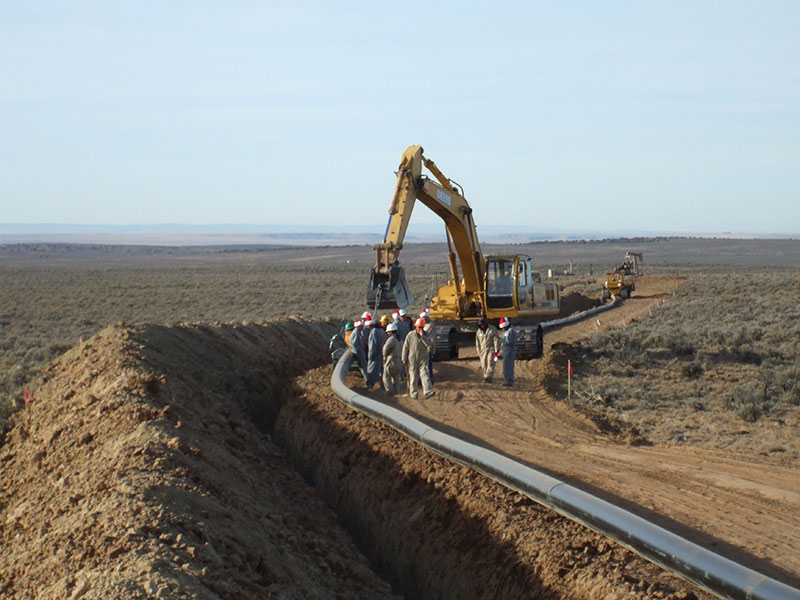Central African Nations Enter Deal to Construct Over 4,000 Miles of Pipeline
(Reuters) — Central African countries signed a deal on Thursday to create a regional oil and gas pipeline network and hub infrastructures which backers say will strengthen energy supply and reduce dependence on imports of refined products.
The project aims to construct three multinational oil and gas pipeline systems of around 6,500 km (4,000 miles), storage depots, LNG terminals, at least three refineries and gas-fired power plants linking 11 countries by 2030, according to project documents seen by Reuters.
The countries, including Equatorial Guinea, Cameroon, Gabon, Chad, Angola, Democratic Republic of Congo and Congo Republic are all oil producers or have vast untapped oil and gas reserves but are dependent on refined products imports.
Most of them have little or no refining capacity and have been struggling with fuel and power shortages, made worse by the Ukraine crisis.
Gabriel Mbaga Obiang Lima, Minister of Mines and Hydrocarbons of OPEC member Equatorial Guinea, told the forum ahead of the signing ceremony in Cameroon that the project was crucial to tackle energy poverty in the region.
He said the project was inspired by West Africa's gas pipeline linking Nigeria, Benin, Togo and Ghana, and the European model where Rotterdam serves as a refining and distributing hub for several countries.
"It will not be cheap, or easy, but if it is done as a collaboration, it will work," he said, adding that the network will help get rid of trucks crisscrossing countries and boost the regional oil and gas market taking products where needed.
The memorandum of understanding for the project signed on Thursday by the African Petroleum Producers' Organization (APPO), one of the backers, and the Central Africa Business Energy Forum, will pave the way for feasibility studies.
Omar Farouk Ibrahim, Secretary General of APPO said the project was one of the most ambitious energy infrastructure projects whose completion has the potential to dramatically change the economies of participating countries.
"It shall take energy from areas of abundance to areas of need within the Central African subregion. It shall integrate and energize national economies of the Central Africa subregion," Ibrahim said.
Related News
Related News

- Keystone Oil Pipeline Resumes Operations After Temporary Shutdown
- Freeport LNG Plant Runs Near Zero Consumption for Fifth Day
- Biden Administration Buys Oil for Emergency Reserve Above Target Price
- Mexico Seizes Air Liquide's Hydrogen Plant at Pemex Refinery
- Enbridge to Invest $500 Million in Pipeline Assets, Including Expansion of 850-Mile Gray Oak Pipeline





Comments